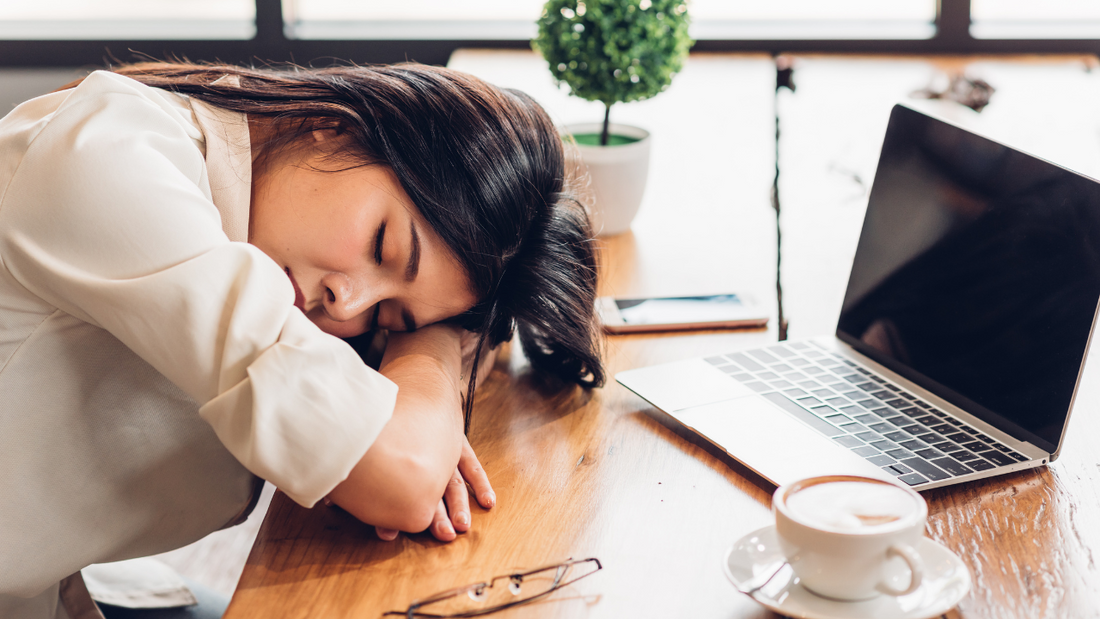
Why Am I Still Tired After 8 Hours of Sleep?
You set your alarm, climb into bed at a reasonable hour, and clock in the recommended 8 hours of shut-eye. Yet, when morning comes, you wake up tired—again. If this sounds familiar, you’re not alone. Many people ask themselves: “Why am I still tired after 8 hours of sleep?”
The truth is, getting enough sleep doesn't always equal feeling rested. There are a number of possible explanations for waking up tired after 8 hours of sleep, ranging from poor sleep quality to underlying health conditions.
In this article, we’ll break down why you might still feel tired even after sleeping 8, 9, or even 10 hours, and what steps you can take to finally wake up feeling refreshed.
1. Sleep Quality vs. Sleep Quantity
You may be sleeping for 8 hours—but is it restorative sleep?
High-quality sleep involves cycling through all stages of sleep, including deep sleep and REM (rapid eye movement) sleep. If your sleep is disrupted, shallow, or fragmented, you’re not getting the restorative benefits that quality sleep provides.
This is one of the main reasons why people wake up tired after sleeping 8 hours. They’ve technically been “asleep,” but their bodies and brains haven’t truly rested.
2. Undiagnosed Sleep Disorders
One of the most common culprits behind excessive daytime sleepiness is an undiagnosed sleep disorder.
If you’re asking, “Why do I feel more tired when I sleep 8 hours?”, sleep apnea could be part of the answer.
Common sleep disorders that cause tiredness even after 8 hours:
-
Obstructive Sleep Apnea (OSA) – Causes brief interruptions in breathing during sleep, often without the sleeper realizing it. These interruptions can occur dozens or even hundreds of times per night.
-
Restless Leg Syndrome (RLS) – Causes uncomfortable sensations in the legs and strong urges to move them, disrupting deep sleep.
-
Insomnia – Makes it hard to fall or stay asleep, and often results in light, non-restorative sleep.
If you wake up tired, experience snoring, gasping, or feel exhausted despite long hours in bed, a sleep disorder could be affecting your sleep patterns.
3. Poor Sleep Hygiene
Sleep hygiene refers to the habits and routines that support healthy sleep. Even if you sleep for 8 hours, poor bedtime habits can interfere with how well you sleep.
Some factors that contribute to low-quality sleep:
-
Using electronics before bed (blue light disrupts melatonin production)
-
Eating too close to bedtime
-
Irregular sleep schedules
-
Sleeping in a room that’s too hot, cold, noisy, or bright
-
Consuming caffeine or alcohol too late in the day
If you’re still tired after sleeping for a long time, improving your sleep hygiene can help your body get deeper, more consistent sleep.
4. Mental Health and Stress
Mental health plays a huge role in how rested we feel. Anxiety, depression, and chronic stress can all disrupt sleep quality and make it harder to get restorative sleep.
Even if you don’t wake up during the night, your brain may be more active than it should be, which reduces the quality of sleep. That’s why many people with anxiety or depression often sleep a full night but still wake up tired.
High levels of mental fatigue can also mimic chronic fatigue symptoms, making you feel like you’ve run a marathon even when you’ve had a full night’s sleep.
5. Inconsistent Sleep Patterns
Do you go to bed and wake up at the same time every day—even on weekends?
Inconsistent sleep patterns confuse your body’s internal clock (circadian rhythm), making it harder to feel alert in the morning—even if you got 8 hours of sleep.
This irregularity leads to sleep debt, meaning you’re accumulating small amounts of missed rest over time. Eventually, this builds up and you begin waking up exhausted, even when you’ve technically had enough sleep.
6. Hidden Medical Conditions
Sometimes, persistent tiredness is a symptom of a deeper health problem. If you're still tired after 9 hours of sleep, or even after 10, it’s worth speaking to a healthcare provider.
Possible medical conditions that contribute to tiredness include:
-
Anemia
-
Thyroid disorders
-
Vitamin D or B12 deficiencies
-
Chronic fatigue syndrome
-
Diabetes
-
Heart disease
These can all interfere with your body’s ability to convert sleep into usable energy, causing you to still feel tired even after a full night’s rest.
7. Lifestyle and Diet Choices
Your energy levels are not only about how long you sleep but how you live when you're awake.
If you're sedentary, dehydrated, or eating poorly, your body may not produce or use energy efficiently. Excessive screen time, poor diet, and lack of physical activity can all leave you feeling tired after sleep.
Likewise, consuming heavy meals or sugar-laden snacks before bed can lead to disrupted digestion and waking up exhausted.
When to Seek Help
If you’ve tried improving your sleep habits but still don’t feel rested, it may be time to get a professional sleep evaluation.
A sleep study can uncover underlying conditions like sleep apnea, while consultations with a sleep specialist can guide you toward proper treatment. At clinics like The Sleep Institute in Alberta, these assessments are covered by Alberta Health and designed to help patients struggling with excessive daytime sleepiness or chronic fatigue.
Final Thoughts: Sleep Smarter, Not Just Longer
Waking up tired after 8 hours of sleep can be frustrating, but it’s not uncommon. The key is understanding that sleep quality matters more than sleep quantity.
If you get a full night’s sleep but still feel tired, look at your sleep hygiene, rule out underlying disorders, and consider getting a professional sleep assessment.
Because feeling rested isn’t just about how long you sleep—it’s about how well you sleep.
